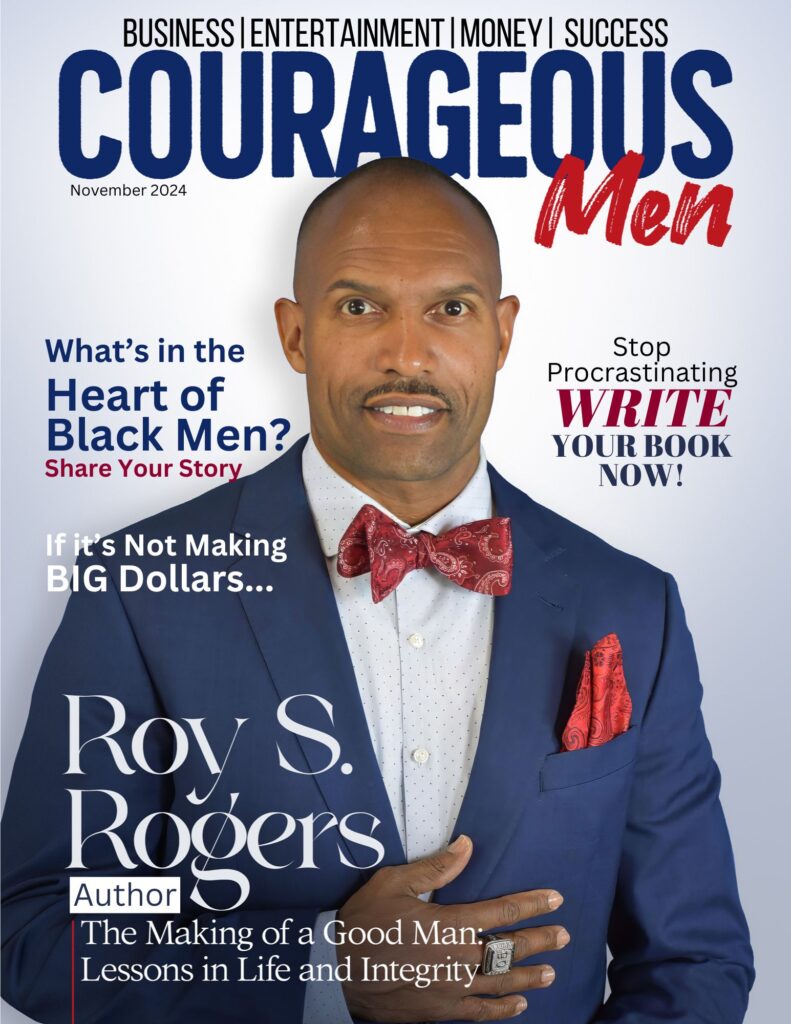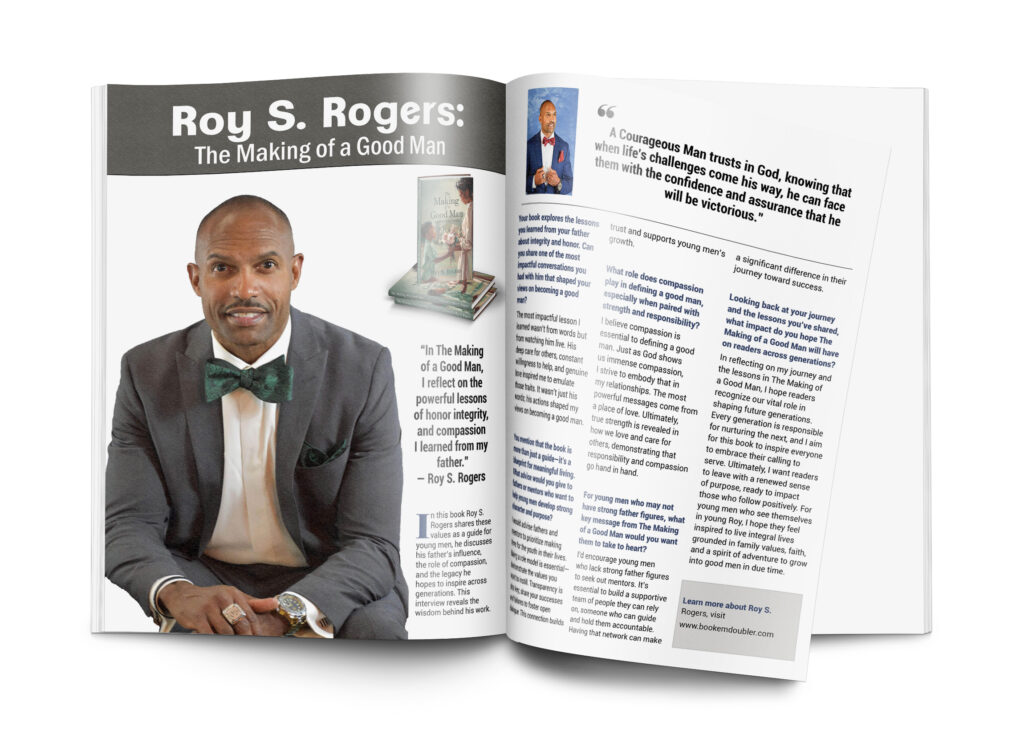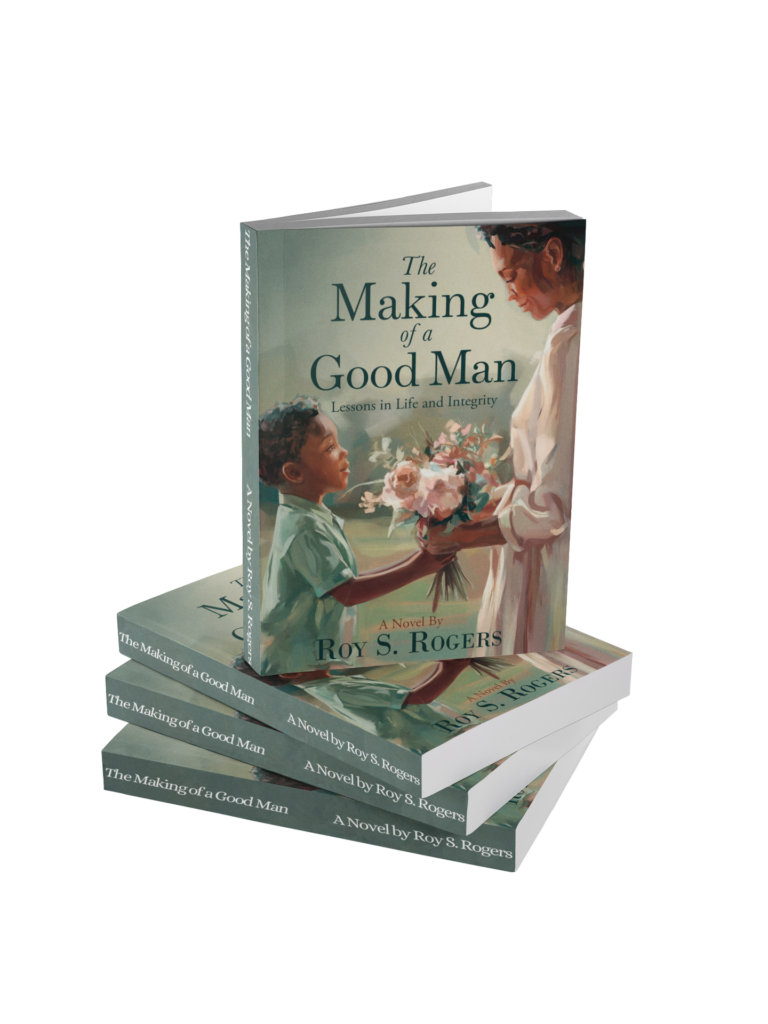
The Making of a Good Man is an Amazon #1 Bestselling book by Roy S. Rogers. In it, he shares these values as a guide for young men. He discusses his father’s influence, the role of compassion, and the legacy he hopes to inspire across generations. This interview reveals the wisdom behind his work.
Your book explores the lessons you learned from your father about integrity and honor. Can you share one of the most impactful conversations you had with him that shaped your views on becoming a good man?
The most impactful lesson I learned wasn’t from words but from watching him live. His deep care for others, constant willingness to help, and genuine love inspired me to emulate those traits. It wasn’t just his words; his actions shaped my views on becoming a good man.
 
How did your 29 years in law enforcement, particularly as a Lieutenant and Supervisor at the South Carolina Criminal Justice Academy, influence the lessons and values you discuss in The Making of a Good Man?
My 29 years in law enforcement taught me that impactful work relies on teamwork. My peers helped me reach my full potential, and I prioritized empowering them in return. We served our community together, embodying the collaboration and mutual support central to The Making of a Good Man.
Your book emphasizes the importance of resilience, responsibility, and respect. How can young men cultivate these qualities in a world of distractions and challenges today?
Distractions will always be present, but young men must take responsibility for their growth by setting and pursuing meaningful goals. They should focus on activities that add value to their lives, like productive extracurriculars. It’s also important to remember that respect is earned, not given, and to cultivate resilience, encouraging them to persevere through challenges.
You mention that the book is more than just a guide‚ÄĒit’s a blueprint for meaningful living. What advice would you give to fathers or mentors who want to help young men develop strong character and purpose?
I would advise fathers and mentors to prioritize making time for the youth in their lives. Being a role model is essential‚ÄĒdemonstrate the values you want to instill. Transparency is also key; share your successes and failures to foster open dialogue. This connection builds trust and supports young men’s growth.
What role does compassion play in defining a good man, especially when paired with strength and responsibility?
I believe compassion is essential to defining a good man. God shows us immense compassion, so I strive to embody that in my relationships. The most powerful messages come from a place of love. True strength is revealed in how we love and care for others, demonstrating that responsibility and compassion go hand in hand.
 
You’ve dedicated much of your life to helping others, both in your career and now through your writing. How do you stay motivated to continue this work in retirement?
I recognize my responsibility to continue sowing into the lives of our youth, and I see this as an ongoing calling‚ÄĒnot just for me but for all of us. Retirement from my professional career has allowed me to dedicate even more time to this mission. For me, this work is truly a labor of love.
 
How did growing up in Flint, Michigan, shape your perspective on manhood and leadership, and how does that influence your writing in The Making of a Good Man?
Growing up in Flint, Michigan, was undoubtedly challenging. As a teenager, statistics suggested my lifespan might not exceed 18, but my faith gave me hope. My understanding of manhood and leadership was shaped by the positive male role models around me‚ÄĒpastors at church, mentors from the Big Brothers Program, supportive teachers, and peers who shared my values. Most importantly, my grandfather and father instilled in me the qualities that define true leadership, influencing the messages I share in The Making of a Good Man.
 
In your experience, what are some of the biggest misconceptions about what it means to be a “good man,” and how does your book challenge those ideas?
A common misconception about being a ‘good man’ is that it relies solely on traditional masculinity, equating strength with stoicism and dominance. However, I believe true manhood lies in vulnerability and openness. My book challenges these ideas by emphasizing that strength involves emotional honesty and a willingness to connect with others.
 
For young men who may not have strong father figures, what key message from The Making of a Good Man would you want them to take to heart?
I’d encourage young men who lack strong father figures to seek out mentors. It’s essential to build a supportive team of people they can rely on, someone who can guide and hold them accountable. Having that network can make a significant difference in their journey toward success.
 
¬†Looking back at your journey and the lessons you’ve shared, what impact do you hope The Making of a Good Man will have on readers across generations?
In reflecting on my journey and the lessons in The Making of a Good Man, I hope readers recognize our vital role in shaping future generations. Every generation is responsible for nurturing the next, and I aim for this book to inspire everyone to embrace their calling to serve. Ultimately, I want readers to leave with a renewed sense of purpose, ready to impact those who follow positively. For young men who see themselves in young Roy, I hope they feel inspired to live integral lives grounded in family values, faith, and a spirit of adventure to grow into good men in due time.


Join the thriving community of Courageous Woman Magazine. We have been dedicated to empowering women in business for over 14 years. Don’t hesitate to step into the spotlight! Courageous Woman Magazine is here to illuminate and showcase your brand, products, and services, helping you reach a wider audience!

